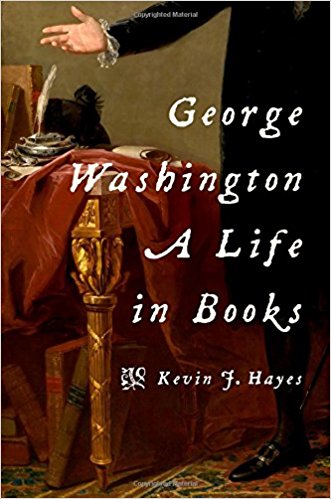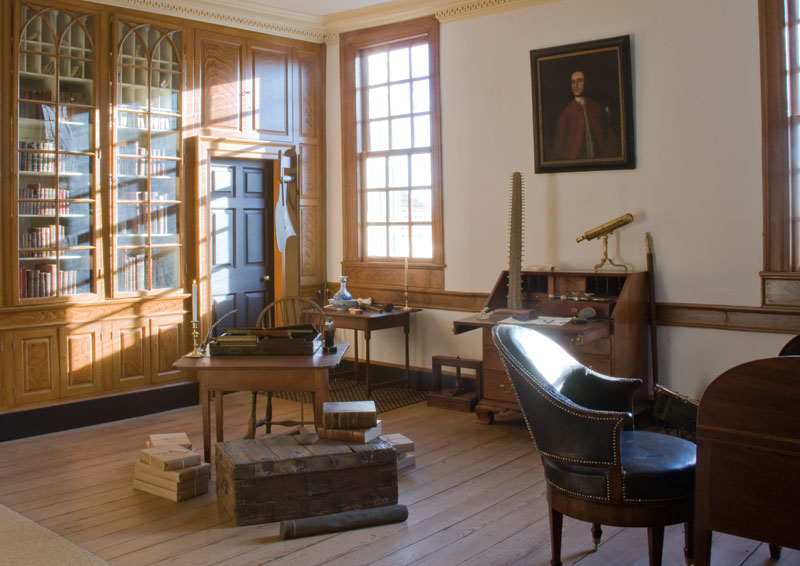Authors:
Historic Era: Era 3: Revolution and the New Nation (1754-1820s)
Historic Theme:
Subject:
Special Issue - George Washington Prize 2018 | Volume 63, Issue 2


Authors:
Historic Era: Era 3: Revolution and the New Nation (1754-1820s)
Historic Theme:
Subject:
Special Issue - George Washington Prize 2018 | Volume 63, Issue 2
A hundred years ago, Ezra Pound criticized American history textbooks for ignoring Washington's intellect; Pound's critique still applies. More often than not, Washington has been seen as a shelf-filler, someone who decorated his home with books but seldom read them fully or deeply. Here's an alternate theory: though George Washington never assembled a great library in the manner of, say, Benjamin Franklin or Thomas Jefferson, he did amass an impressive and diverse collection of books that he read closely and carefully, and that significantly influenced his thought and action.
The image of George Washington as a man of letters is much different from the accepted image of George Washington as a man of action. This new view may take some getting used to, but the story of Washington's life of the mind, pieced together with some archival detective work, can be quite exciting.
When I started to write the first intellectual biography of Washington, a historian tried to discourage me, claiming the documentary materials simply do not exist to tell such a story. Unlike so many of the other Founding Fathers, he argued, Washington left little record of his intellectual life. Benjamin Franklin wrote a famous autobiography, among many other occasional pamphlets, essays, and letters, all of which dramatize his lifelong interest in reading and writing. Thomas Jefferson's voluminous correspondence and his massive library provide access to his mind. And John Adams recorded his agreements and disagreements with authors in the margins of his books.

Though Washington's surviving comments about books and reading are not nearly as extensive as those of some other Founding Fathers, he did leave many different types of evidence that, in the aggregate, can help reconstruct his life of the mind. Although his library was widely dispersed during the nineteenth century, many of his books do survive. The Boston Athenaeum holds the single largest collection of books formerly in his possession. Additional books survive at Mount Vernon, the Firestone Library at Princeton University, the Houghton Library at Harvard University, the Library Company of Philadelphia, the Library of Congress, the Lilly Library at Indiana University, the Morgan Library, the New York Public Library, the Virginia Historical Society. I examined as many books from Washington's original as I could for clues to his thinking.
With the notable exception of his copy of James Monroe's View of the Conduct of the Executive of the United States, Washington's surviving books contain few notes in the margins, but he did occasionally write in his books. Most of the time he did so to correct typographical errors, but sometimes his marginal notes reveal how he read. Occasionally his notes in one book indicate other books he read. The fact that Washington wrote in his books has gone largely unnoticed, because uncovering these notes requires work that some find tedious. One must examine the surviving books meticulously, turning over one page after another in search of the slightest pencil marks showing that Washington did read the volumes that bear his bookplate.

There is also evidence to identify books from Washington's library that do not survive. Mainly, it comes in the form of library catalogues. Washington himself compiled two such catalogues, which not only list what books he had at Mount Vernon but also demonstrate his level of bibliographical expertise. Lund Washington, his cousin and plantation manager, compiled a list of books at Mount Vernon toward the end of the Revolutionary War. Washington's library was inventoried with his estate after his death. When many of his books went up for sale in the nineteenth century, the booksellers described them in considerable detail. All these various catalogues provide much additional information about Washington's books.
Washington not only owned and read books, he also wrote and published them. Washington was a reluctant author, but sometimes his professional responsibilities compelled him to publish what he wrote. Occasionally editors, both friends and enemies, took charge and edited Washington's writings, especially his letters, for publication, and we can glean valuable information from them as well.
As a writer, Washington was at his best when penning letters. Like any good letter writer, he shaped his tone and persona to suit individual readers. Though he seldom discussed his reading with correspondents, sometimes he did provide bookish advice, especially when it came to recommending what military manuals to read or what agricultural manuals were useful. Washington's correspondence, which fills dozens of volumes in the standard edition of his papers, contains numerous references that shed light on his books and reading. His literary allusions are often subtle, and many of them have gone unnoticed previously.
Washington also kept a diary through much of his life, but his individual diary entries are frustratingly brief. He says where he was and what he did, but seldom does he reveal the inner man. He rarely mentions what he read or what he was thinking. Every once in a while,